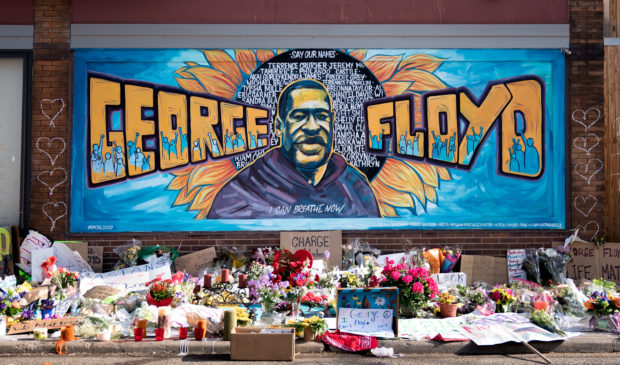Public Safety Commission addresses George Floyd killing
Tuesday, June 2, 2020 by
Nina Hernandez The Public Safety Commission convened Monday afternoon with a lengthy statement by Chair Meghan Hollis, who said she would be “remiss” if she didn’t address the national furor over the police killing of George Floyd, a black man in Minneapolis.
She also announced the commission would be dividing itself into three working groups: one to evaluate problematic policies and related practices that contribute to systemic racism in city agencies; one identifying policies that facilitate community policing; and one to determine the best way to handle protests and rioting.
Protesters flooded downtown Austin this past weekend demanding justice not only for Floyd, but for Michael Ramos, who was shot and killed by the Austin Police Department in April. In a statement released by the Austin Justice Coalition on May 31, Ramos’ mother Brenda questioned why the officer involved, who had been involved in a previous incident in 2014, was allowed to keep working for APD. “I need you all to be witness to my anger and confusion and tears because I am not getting any answers from Chief Manley,” Ramos said.
Austin Police Chief Brian Manley confirmed in a Monday news conference that a 20-year-old black man is in critical condition after being struck by “less lethal” ammunition outside police headquarters Sunday night, and a young Latino protester and a pregnant woman were also injured during the protests. He said all three incidents are being investigated.
While Manley said he had “cried a couple of times” over the injuries to civilians, he defended APD’s use of tear gas to move protesters off of Interstate 35.
On Monday, Hollis discussed the commission’s role in advising Council on how to move forward during this time.
“The Public Safety Commission is charged with providing advice to the Austin City Council on matters related to public safety,” Hollis said. “We also have a responsibility to lead the way in making evidence-based and data-driven recommendations.”
Hollis continued by saying that the commission is ready as a whole to roll up its sleeves and begin to advise Council on how to bring “public safety into the 21st century.”
“I believe that the path forward is for us to have public safety for all in the city of Austin, and for us to have an environment that provides equal access to public safety for all, and for equal application of the law to all citizens.”
By their nature, organizations and individuals are resistant to criticism and change, she said. But she urged the city and its departments to embrace change for the betterment of all.
“We need to work together to move our society forward,” Hollis said. “We need to work together to heal the wounds that we are all feeling, the wounds that are so raw today for so many of our citizens and so many of our police officers.”
She also urged citizens not to make police officers the lone symbol of systemic racism, pointing to other systems and institutions that function together to create the unjust environment we’re living in.
“Police have the most visible representation of the state of our society,” she said. “Their uniforms and police cruisers and other visual signals mark them clearly as representatives of the state in our lives. That makes them a clear target for our anger, our fears, our frustrations, and our sadness.
“But the reality is that the problems we’re facing with systemic racism in society neither start nor end with the police. They are just the most visible outlet for those emotions right now.”
She noted that police are asked to enforce laws that are written by policymakers, and must sometimes enforce laws they don’t feel are just.
“If we don’t start shining a light on other systems that encourage these practices, we will never develop a lasting solution,” she said. “The police do not control whether prosecutors file charges against police officers who are bad actors. Those decisions lie in the offices of our prosecutor.
“They do not determine the sentences applied to those convicted of crime, where people of color carry the disproportionate burden of punishment in our society,” she continued. “They do not control the health care systems that result in systemic disparities in the quality of care received, and the health outcomes of people’s lives. We can talk about access to education, jobs, equal pay, wealth, and more.”
Photo made available through a Creative Commons license.
The Austin Monitor’s work is made possible by donations from the community. Though our reporting covers donors from time to time, we are careful to keep business and editorial efforts separate while maintaining transparency. A complete list of donors is available here, and our code of ethics is explained here.
You're a community leader
And we’re honored you look to us for serious, in-depth news. You know a strong community needs local and dedicated watchdog reporting. We’re here for you and that won’t change. Now will you take the powerful next step and support our nonprofit news organization?











